The Hemp Movement

Hemp has been around for hundreds and thousands of years, and people have used it for several purposes since then. While ancient men were fond of Hemp, today's modern men also recognize this holistic solution's potential for different ailments.
Although Hemp does not have enough intoxicating compound THC to induce high, it has been penalized for a long time. But with a growing number of hemp enthusiasts, the legislative bodies have lifted or planning to lift the prohibition on hemp farming and use.
This article will discuss different countries and their hemp legalization efforts. So let's read ahead.
Legalization of Hemp in the USA
For the first time, the Marihuana Tax Act of 1937 imposed a high tariff on hemp use and trade, inhibiting cultivation. Hemp was a mandatory plant for all American farmers before the Marihuana Tax Act, owing to its usage and trading potential. Hemp was utilized to manufacture paper, lamp oil, rope, and other items in the early years of North America.
Hemp wasn't classified as a Schedule I substance before the 1970s. During the War on Drugs, manufacturers in the United States were subjected to restrictive standards due to the Controlled Substances Act of 1970.
Interestingly, the United States started importing hemp seed and oils from other nations in 1998, even though hemp farming was still illegal under federal law.
In 2004, the Ninth Circuit Court determined to indefinitely preserve the trade of hemp and skincare products, which was one of the first significant steps toward hemp regulation. The push for hemp decriminalization exploded from that point.
Furthermore, two North Dakota farms received the very first hemp permits in 2007.
Next, in 2014, President Barack Obama approved a variant of the Farm Bill that created the Hemp Pilot Program allowing the selected research institutes to grow and research Hemp.
And finally, in December 2018, people saw a new dawn of the Hemp industry as it was legally authorized on a national level as per the 2018 hemp farm bill. About that, the fast-paced hemp industry of the United States has surpassed China and Canada as the world's third-largest hemp producers by 2019.
The significance of the 2018 Farm Bill is that it permitted Hemp for the very first time in a century.
Hemp was officially authorized in the 2018 Farm Bill, which amended the Controlled Substances Act (CSA) to exclude Hemp from the classification of marijuana, which would remain prohibited.
According to the bill, only authorized producers will be allowed to cultivate Hemp. Moreover, farm subsidies and government certificates will be available to registered hemp farmers.
Besides, the bill stated that Hemp's federal legalization has no effect on state legislation. Individual states may continue to restrict hemp cultivation and consumption.
Legalization of Hemp in Canada
Cannabis was illegal in Canada from 1923 to 2001, when it was legalized for medical purposes.
The Ontario Court ruled in 2000 that the criminalization of Hemp was illegal since it did not allow for therapeutic usage. The following year, Health Canada reacted to the verdict by regulating hemp availability for authorized patients who were allowed to cultivate their plants or purchase them from licensed growers.
Government legislation authorized the cultivation and marketing of medical cannabis in 2013, resulting in the establishment of a regulated, commercial industry.
The Supreme Court of Canada led in 2015 that limiting medical marijuana patients to consuming dry cannabis was discriminatory. The decision makes it lawful for authorized growers to develop hemp oils and other cannabis-derived products. It also declared it legal to ingest cannabis-infused foods and beverages.
Prime Minister Justin Trudeau's Liberal administration declared in 2015 that it would decriminalize and control cannabis use and trade. It established the Task Force on Cannabis Regulation and Legalization in June 2016 after discovering that more people are using cannabis, causing the criminalization rate to soar.
The government proposed Bill C-45, the Cannabis Act, in April 2017 to legalize marijuana cultivation and commercialization.
The Act gained royal approval on June 21, 2018, and took effect on October 17, 2018. After Uruguay, Canada became the second nation to decriminalize cannabis under the new legislation.
Canadians over 18 and up can now buy cannabis online or at statewide licensed commercial outlets under the new legislation. Individuals are also permitted to cultivate up to four cannabis plants privately and carry up to 30 g of dry marijuana (or the same in non-dry form) publicly. On October 17, 2019, regulations governing the sale of consumables, extracts, and topicals went into effect.
Legalization of Hemp in the UK
Hemp was allowed throughout the United Kingdom in the 16th century. It was vital before when King Henry VIII commanded that each farmer cultivate a quarter acre of it for every 60 acres of property they possessed in 1595.
Moving ahead to the 20th century, most of the world has discovered the advantages of hemp cultivation and farming. Nevertheless, this carried consequences, so by the 1900s, it was better to acquire Hemp from abroad rather than domestically cultivate it in the United Kingdom, leading Britain's hemp fields to steadily fall. Later, in 1928, Hemp was banned in the UK, including other types of cannabis such as marijuana.
Fortunately, the hemp sector got a breakthrough in 1942, when American scientist Roger Adams isolated CBD. This was the first time a clear distinction was made between Hemp's non-psychoactive cannabinoids and its high cousin THC.
In 1993, the endocannabinoid system was identified, and Hemp was re-legalized in the United Kingdom.
Cannabis was reclassified as a Category C substance in the UK in January 2004, after more than 75 years of being a Class B drug, due to studies associating hemp usage with psychosis, which has harmed Hemp's image. Hemp was categorized as a Class B substance five years after, with more current studies suggesting that psychosis is more prone to cause cannabis usage.
Sajid Javid, the UK's former Secretary, indicated in 2018 that the administration plans to examine and possibly categorize cannabis for therapeutic purposes. Regulatory permission was required for any items, including cannabidiol, to be sold with particular medicinal claims.
Despite the fact that CBD was now allowed to own, bought, and sold in the UK – as long as its THC levels didn't exceed 0.2 percent - it couldn't be represented as having any therapeutic qualities. All CBD products - essentially the modern mainstay item of the Hemp – were categorized as "novel food" a year afterward, in 2019.
Legalization of Hemp in Australia
The casual smoking of cannabis in Australia began in Kings Cross in the 1960s, despite the fact that the herb had been illegal for ages. It was brought to Sydney by US soldiers on break from the War In Vietnam.
The drug's popularity expanded across urban Sydney and outside over the coming years. Officials' immediate approach was to arrest individuals. The imprisonment rate increased nearly 1000 percent from 1966 to 1969. In addition, the sanctions for cultivating, supplying, and possessing the plant have been raised.
Cannabis is the most generally used illegal drug in the United States, while Australians also invested more than 3 billion dollars in marijuana in 2010.
According to the 2016 Survey, 36% of Australians above 18 reported starting smoking cannabis at some point.
Legislators like Victorian Reason Party MLC Fiona Patten and NSW Greens MLC Dr. Mehreen Faruqi have recently called for its casual usage to be legalized.
Cannabis has been prohibited in Australia for nearly 100 years, and it is the residents have already paid dearly.
Hemp regulation movements are gaining steam worldwide, and Australians now realize what they've been missing out on for the past century.
Four nations have allowed cannabis for recreational use, while 42 others, including Australia, have approved it for medicinal use only.
Legalization of Hemp in Germany
In 1982, hemp farming was rendered illegal. This prohibition, nevertheless, only spanned 14 years. Hemp cultivation was allowed to resume in 1996, given the widespread opposition from growers, researchers, and fans.
Its production has varied since then. In 1996, for instance, Hemp was grown on 3,500 hectares, additional 750 acres by the Dutch company HempFlax. By 2011, this practice had all but disappeared.
The hemp market rebounded in the following years. Germany is among Europe's five largest producers, despite its crop volumes being surpassed by France.
In Germany, it is prohibited to use cannabis, while tiny amounts for personal use are permitted. Many lawmakers are advocating for full decriminalization, even though the number of the population is opposed. Nevertheless, the therapeutic cannabis business is booming, and indigenous medicinal cannabis will be cultivated eventually.
While Hemp has been around for centuries, it was misbelieved to induce euphoria, often attributed to marijuana. But unlike its toxic counterpart, Hemp is entirely harmless and safe for consumption. As more research on its health benefits, more individuals are indulging in this plant. And that's the reason why increasingly, countries are unbanning it.
Legalization in India
Hemp and India go hand in hand because one is earth's oldest civilization, and another is a sustainable and most beneficial planet. In India, hemp has been utilized for millennia. In fact, it is mentioned in the Vedas, which are said to be around 3400 years old, as one of the five highly precious herbs!
Hemp is used in various fields, including healthcare, steelworks, and as a substitute for toxic plastics.
Regarding hemp and India, a few questions need to be answered immediately. What is the status of hemp legalization in India? And why is it against the law in India?
The Legalization of Hemp in India
The Narcotic Drugs and Psychotropic Substances (NDPS) Act in India prohibits the cultivation and trade of cannabis buds and extract. This prohibition was enacted in the 1980s when Hemp had previously been commonly cultivated and collected.
The problem is that hemp is a member of a similar botanical family as marijuana. Nevertheless, it will not have the same negative impact as its well-known sibling. Marijuana is psychotropic tetrahydrocannabinol (THC)-containing female Sativa plant that is ingested to get a "buzz." Hemp, on the other side, has less than 0.3 percent THC and hence does not have the same impact as marijuana.
There has been some misunderstanding about the properties of THC in cannabis. However, India ranks second in terms of drug consumption, resulting in a prohibition on hemp growing.
Present Legal Situation of Hemp in India
The provincial government of Uttarakhand recently emerged as the first in India to give a hemp farming permit. Hemp can be grown legitimately if the THC concentration is less than 0.3 percent. Uttar Pradesh has become the second state in India to legalize hemp production, following Uttarakhand. Himachal Pradesh, Madhya Pradesh, Manipur, and several other provinces are also planning to loosen their borders. Regional businesses and enterprises are taking notice of the improving legal situation for hemp in India.
Hemp businesses in India source hemp from Europe, North America, and China since Raw hemp can be imported with no limitations, provided it follows India's phytosanitary criteria. Now there is anticipation that commercial hemp farming may start in India, allowing the country to provide its own businesses and significantly contribute to the world hemp market.
In the meantime, conducting hemp studies, for which a license can be obtained simply anyplace in India, is not prohibited.
Since only two provinces in India have authorized hemp production at this time, it's a solid start and a promising harbinger of changes to come. Other regional policymakers should progressively open up to hemp farming and commercial manufacturing. Simply put, industry and businessmen must strive to look for new ways to profit from this miraculous crop.

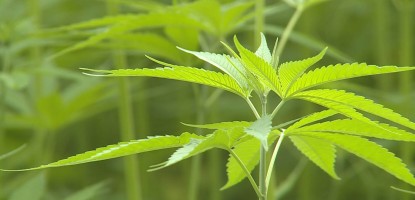
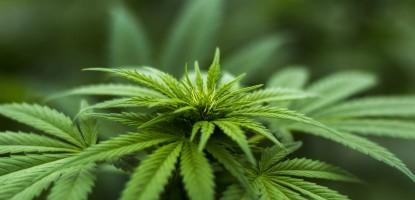
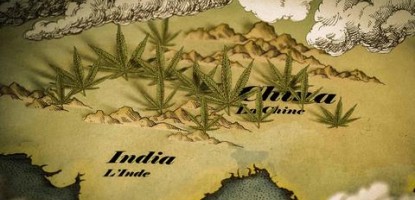
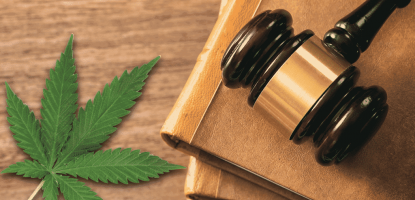
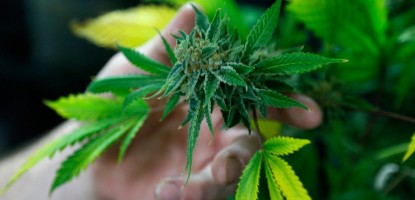
1 Comment(s)
Such great! & an informative article amazing post and great content. Thanks for sharing this article. Thanks Again!!
Leave a Comment